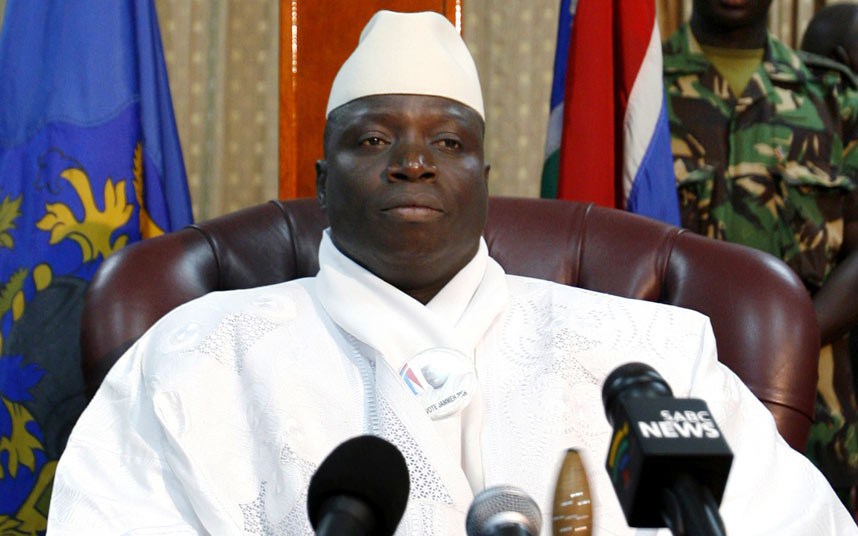
The move by outgoing Gambian President Yahya Jammeh to stop the inauguration of the President-elect Adama Barrow suffered a major setback on Monday as the country’s Supreme Court refused to hear the application.
Last Thursday, the country’s ruling Alliance for Patriotic Reorientation and Construction, APRC, filed an application for an interlocutory injunction seeking to stop the inauguration of Mr. Barrow as President on January 19.
In the application signed by its lawyer, Edward Gomez, the APRC is asking the court for an order of interlocutory injunction preventing the chief judge of the country from inaugurating or swearing in Mr. Barrow as the President of The Gambia until the determination of the election petition.
The party also is asking the court for an order “restraining, the President from preparing, arranging, organising, conducting, partaking or participating in any manner or form in the swearing-in and /or inauguration of Adama Barrow as President of the Republic of The Gambia on January 19, 2017.”
The APRC further prayed the court for an order restraining the country’s National Assembly, its members and any organ of government from partaking in the inauguration of Mr. Barrow.
Lastly, the party prayed the court for an order stopping Mr. Barrow from presenting himself to the country’s Chief Judge or judiciary to be sworn-in as president of The Gambia.
But on Monday, the country’s chief judge, Emmanuel Fagbenle, a Nigerian, declined to grant the prayers requested by the APRC, which would have effectively extended the tenure of the country’s President Yahya Jammeh.
The court refused to consider the application on the ground that the application listed the Chief Judge, who is the only Supreme Court Judge at the moment, as a party in the application.
Mr. Fagbenle therefore stated that he could not give an order against himself.
He said he would remove himself from the suit in the interest of fairness. He then adjourned the election petition until the court is fully constituted.
Last Monday, the court ruled that it could not consider the election petition filed by the APRC because the required quorum of five judges to hear the petition was not met.
PREMIUM TIMES reported how the quorum could not be formed because Nigeria and Sierra Leone declined the Gambian request to send judges to sit at the Supreme Court
The Gambia relies on judges and other judicial officials from other West African countries to help fill its draught of top officials in its judiciary.
Mr. Fagbenle said Gambia made a request for judges from Nigeria and Sierra Leone since last August. But the countries’ judicial authorities said they could not send judges outside the usual May and November judicial sessions .
“You will recall that justices are usually scheduled to sit in your Supreme Court in the month of May and November,” a letter dated January 5, 2017 by the acting chief justice of Nigeria, Walter Onnoghen, to Mr. Fagbenle reads.
“Based on the long established understanding, our court sitting schedule is usually drawn up with the consideration of this assignment. In view of the above, I regret to inform you that the reschedule dates for the sitting session of your Supreme Court is unfavourable to us as it will greatly affect our schedule and case management. I therefore urge you to adhere to the earlier schedule of May and November each year to avoid inconveniences to both judiciaries.” Mr Onnoghen added.
By Monday’s ruling, Mr. Jammeh, who has vowed to remain in power, will be illegally occupying the office of the President of the tiny West African country after Wednesday when his tenure expires.
Already, the African Union has said it will not recognise Mr. Jammeh as Gambia’s president beyond that date.
END

Be the first to comment